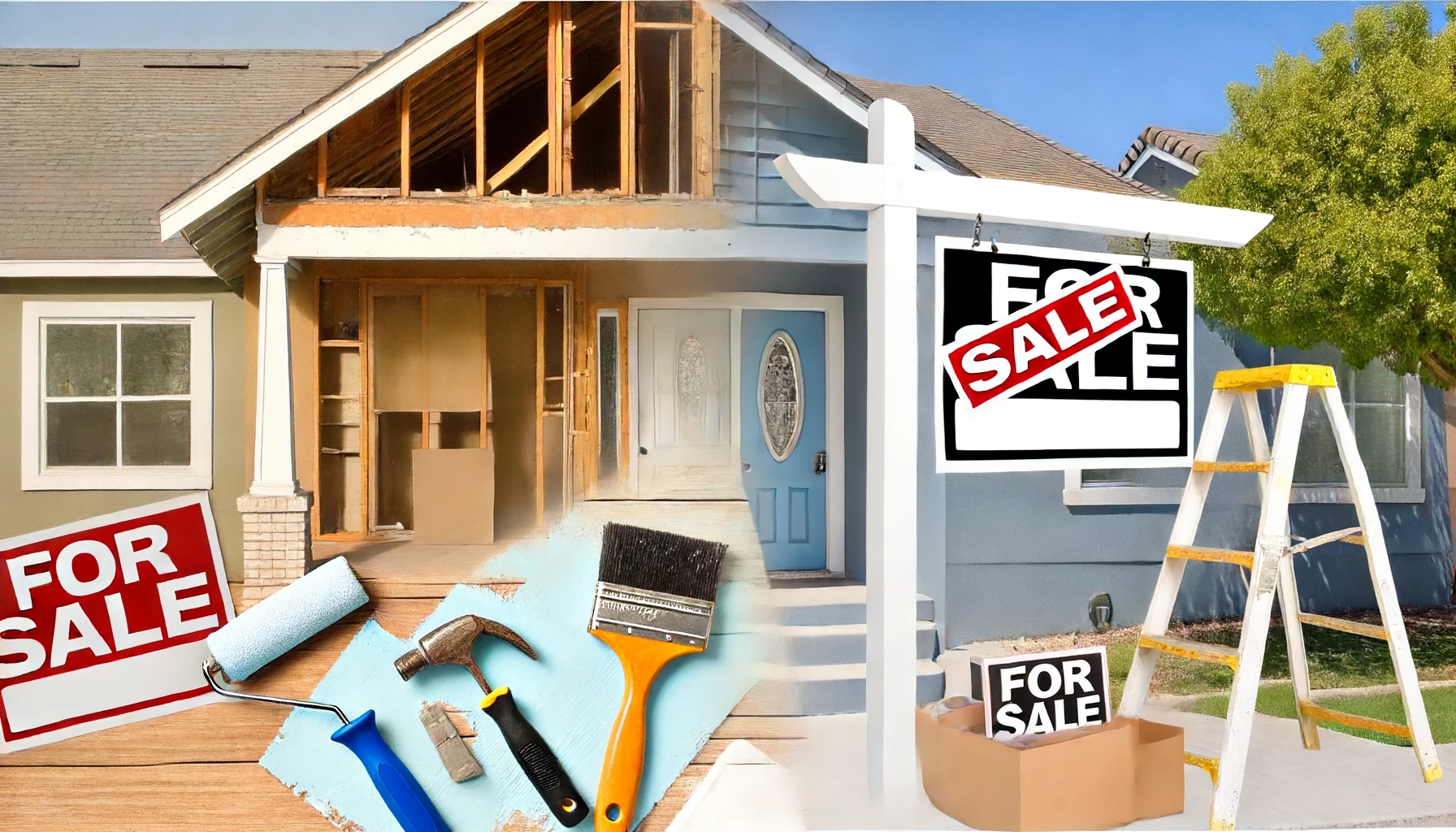
Nabbing a deed to a home these days is no easy feat. In this hostile market, many hopeful buyers are looking around for a fixer-upper just to get a toehold. In fact, there are financing options out there that make restoring a home affordable for buyers who have struggled to enter the market and don’t have extra funds to spend. And yes, there are ways to do it all even if you’re not a “handy” person yourself.
That said, even the hardy souls willing to help revitalize a neighborhood don’t get many breaks. They, too, face intense competition. They’re up against all-cash buyers, corporate buyers…
So the quest is not just finding a fixer-upper, but knowing how to find it before it’s gone. If you’re ready to meet the challenge, take a look at some questions other buyers frequently ask — and possible answers that just might give you an edge.
Q. Finding the Right Home to Repair: Where to Start?
A. If you’re looking for a home to live in, chances are you’re not up for learning everything you can about fixing homes. You’re in it for a one-time win. In that case, you can start by seeking out a real estate agent. Not just any agent. An agent who happens to be into fixing and flipping, or do-it-yourself rehabbing. An agent who knows the right local inspector to check the structure and systems of the home…
In short, find your people. You’ll learn just enough about buying homes in need of renewal without going down the full rabbit hole yourself.
While you’re looking for that great agent, you might explore the HUD Home Store. There isn’t always a huge selection, but there are some very good deals from time to time.
Q. Where Are Distressed Homes That Aren’t Publicly Listed?
A. You can bet they exist. Can your agent find such homes in the area you want to live in? Agents who do this on the regular know where to find estate sales, tax foreclosures, and homes that didn’t sell while listed.
Unlisted homes appear on auction sites. Search online, with terms such as “Tax Auctions” or “Sheriff Real Property Foreclosure Auctions” and your county.
Your agent may also be on the alert for foreclosed homes available to first-time home buyers, before being released for investor-buyers. That’s a thing!
And, by the way: Your mail carrier knows where the local vacant properties are.
Some states allow buyers to pay past-due taxes to purchase homes. Learn more on Deeds.com.
Q. Where Do I Get a Contact List of Good Contractors?

A. With your experienced agent by your side, you shouldn’t have to reinvent the wheel. Same goes for finding a home with lasting value. An agent who has bought fixer-uppers will know the difference between people and homes worth your attention — and the one to avoid.
Your real estate pro can help check permits, trace the home’s ownership history, and rule out homes with lingering hazards that could make a property uninhabitable.
Considering DIY upgrades on a home you’ll buy? Check our guide: Everything You Wanted to Know (or Not!) About Permits.
Q. How Would I Beat Out Investors Ready to Make All-Cash Offers?
A. Investors with wads of cash are ready to pounce, fix, and flip at a moment’s notice. We can’t sugarcoat it. It’s hard to compete with buyers who do this as a business.
But don’t forget what you’re bringing to the table. If you’re investing in a home to live in it, no house flipper can match what you’re offering.
But will that matter? It depends who’s selling. Be sure they know your motivation for buying the home.
Q. Can I Get a Conventional Loan for a Distressed Property?
A. Yes, Fannie Mae and Freddie Mac back rehab loans. A rehab loan empowers a buyer to buy a home that needs work — a home which lenders would not touch otherwise. And with this kind of financing, a buyer of a fixer-upper can blend the necessary mortgage and repair funding into one single loan. A lender will also consider your planned upgrades when assessing the value of the home, which boosts your application as it helps with your loan-to-value ratio.
Some community banks are experienced in this area. They can oversee the contractors and the entire rehab process on your behalf. In any case, allow the lender to take time with the application. Although this is just about one loan, it’s time-consuming to underwrite a mortgage with extra checklists, risks, and complexities.
Buy now, repair later? If the fixes can wait, a home buyer can build up equity, and look into home equity lines of credit (HELOC).
Q. Can I Get an FHA Loan for a Distressed Property?
A. The Federal Housing Administration backs what’s called a 203(k) loan. It lets a buyer with good credit put down as little as 3.5% on a fixer-upper.
Indeed, the federal Department of Housing and Urban Development (HUD) encourages first-time buyers to get 203(k) loans. Rehabbing existing housing is good for neighborhoods and hopeful buyers alike.
You’ll likely be paying a mortgage insurance premium. And interest rates tend to run higher for renovation loans. Ask your loan officer about the rates, fees, and premiums.
On the other hand, if you get a major rehab loan ($35K+ in renovations), the work is overseen by a HUD consultant — and that includes guidance for you as a buyer.
Q. How Can a HUD Consultant Help Me Win?
A. The 203(k) loan puts a HUD consultant on the case. This means you don’t need to know how to fix a home yourself. You won’t need to oversee the contractors, either. Your consultant will:
- Make sure there’s a report that itemizes all the need upgrades and repairs, with price quotes provided.
- Oversee the contractors’ bids.
- Work with your loan officer to get you through to the final approval.
- Release funds for the contractors at each stage of the renovations.
Every step of the way, of course, you’ll have an opportunity to greenlight the work.
Q. Is Buying a Fixer-Upper Worth It in the End?
A. With the right mindset, yes. What does this mean? It means you don’t mind taking maybe three months instead of just one month to get to closing. It means you can picture the home as it will be, and you’re prepared to see the repair process through to its conclusion.
With the right mortgage, you can get the support you need to make the whole project possible. You’ll have a higher interest rate, but could get serious savings on the price of your home. And your commitment to renovate means you’re building equity from day one. Stay the course, and you’ll have the satisfaction of uplifting a neighborhood — and your future.
Supporting References
The Philadelphia Inquirer: Buying a Fixer-Upper? Here’s One Way to Help Pay for Your Home – And Renovations, Too (Apr. 18, 2023).
Deeds.com: Buying a Fixer-Upper – What Are the Best Financing Options? (Mar. 31, 2021).
And as linked.
More on topics: Young buyers are renovating, Effect of home renovations on title
Photo credits: Ivan Samkov via Pexels/Canva.
